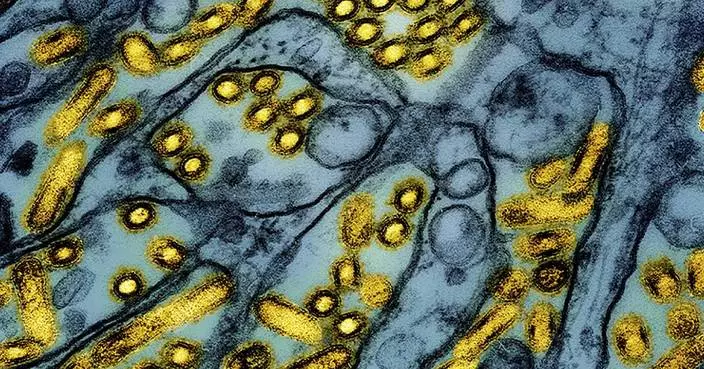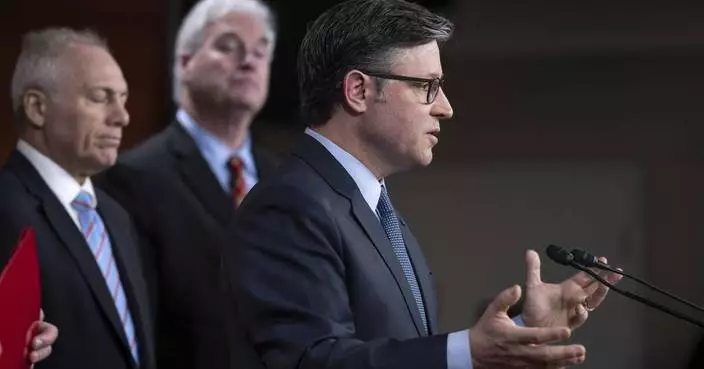OKLAHOMA CITY (AP) — An Oklahoma man who killed a 10-year-old girl in a cannibalistic fantasy died by lethal injection Thursday in the nation’s 25th and final execution of the year.
Kevin Ray Underwood was pronounced dead at 10:14 a.m. at the Oklahoma State Penitentiary in McAlester, state Department of Corrections spokesperson Lance West said. It was Oklahoma’s fourth execution of the year, and it took place on Underwood’s 45th birthday.
Oklahoma uses a three-drug lethal injection process that begins with the sedative midazolam followed by a second drug that paralyzes the inmate and a third that stops their heart.
Underwood, a former grocery store worker, was sentenced to die for killing Jamie Rose Bolin in 2006. Underwood admitted to luring Jamie into his apartment and beating her over the head with a cutting board before suffocating and sexually assaulting her. He told investigators that he nearly beheaded Jamie in his bathtub before abandoning his plans to eat her.
During a hearing last week before the state’s Pardon and Parole Board, Underwood told the girl’s family he was sorry.
“I would like to apologize to the victim’s family, to my own family and to everyone in that room today that had to hear the horrible details of what I did,” Underwood said to the board via a video feed from the Oklahoma State Penitentiary.
The three board members in attendance all voted against recommending clemency.
Underwood’s attorneys had argued that he deserved to be spared the death penalty because of his long history of abuse and serious mental health issues that included autism, obsessive-compulsive disorder, bipolar and panic disorders, post-traumatic stress disorder, schizotypal personality disorder and various deviant sexual paraphilias.
Prosecutors argued that many people suffer from mental illness, but that doesn’t justify harming children.
In a last-minute request seeking a stay of execution from the U.S. Supreme Court, Underwood’s attorneys argued that he deserved a hearing before all five members of the board and that the panel violated state law and Underwood’s rights by rescheduling the hearing at the last minute after two members of the board resigned. The court rejected that bid earlier Thursday morning.

FILE - Kevin Ray Underwood arrives in the courtroom for his formal sentencing in Purcell, Okla., on April 3, 2008. (AP Photo/Sue Ogrocki, Pool, File)
UNITED NATIONS (AP) — Antony Blinken pointed to the promise and pitfalls of artificial intelligence in a likely final trip to the United Nations as secretary of state, capping his engagements with the world body after a tumultuous four years that saw war return to Europe and multiple crises in the Middle East.
With the U.N. Security Council more divided than ever, Blinken is leading two meetings of the U.N.’s most powerful body on Thursday. But neither will focus on Russia’s war with Ukraine or the Middle East, where the U.S. has been frequently at odds with permanent members China and Russia and almost always in the minority when it comes to Israel’s war against Hamas in Gaza.
Instead, in an apparent bid to produce a modicum of consensus, Blinken is leading Security Council sessions on AI and the conflict in Sudan, which aid agencies say has sparked a dire humanitarian crisis that has not received enough attention.
On AI, Blinken said it has the potential to do “tremendous good” but can also pose “tremendous threats to the international peace and security that this council is charged with upholding.”
Here’s a look at America's top diplomat at the U.N.:
Blinken has been appearing in person and virtually before the Security Council since March 2021, just after assuming his position as the Biden administration’s top diplomat.
In addition to several one-off council meetings, including one in February 2022 shortly before Russia invaded Ukraine, Blinken has gone to New York for a week every September for the annual General Assembly gathering of world leaders.
The presidency of the Security Council rotates alphabetically every month among its 15 members. This month, it's the U.S. turn.
The country holding the presidency almost always organizes several signature events on topics its government chooses. Presidents, prime ministers and foreign ministers often preside at these meetings, which ministers from other council nations are invited to attend.
Russia and China have blocked all council action condemning the invasion of Ukraine.
This has led U.S. officials to believe that a session on the topic, especially as President-elect Donald Trump prepares to take office with a stated goal of ending the war immediately, would likely be a waste of time.
On the Middle East, the U.S. has frequently vetoed council action condemning Israel for its tactics against Hamas in Gaza, leaving it virtually alone at the United Nations in supporting Israel.
The U.S. leads the world in developing AI technology, according to a recently released Stanford University index, and it has been in the forefront of U.N. action on AI.
In March, the first U.N. resolution on artificial intelligence was adopted by the 193-member General Assembly. Sponsored by the U.S., it gives global support to an international effort to ensure the powerful technology benefits all nations, respects human rights and is “safe, secure and trustworthy.”
Blinken noted some threats posed by AI, saying “repressive regimes are using AI-enabled surveillance to target journalists and political dissidents" and that "if algorithms are built into weapon systems, and if they malfunction, they could spark a conflict.”
“By setting rules of the road for AI we can minimize these risks, we can harness the exceptional promise of this technology,” he said.
The U.S. ambassador to the U.N., Linda Thomas-Greenfield, recalled in early December that the previous U.S. presidency of the Security Council in August 2023 took place just months after war broke out in Sudan between rival generals heading the military and paramilitary forces.
The fighting has left tens of thousands dead, forced millions from their homes and pushed a large swath of Sudan’s population to starvation — creating an often forgotten global crisis the U.S. is seeking to spotlight.
Sudan “is facing one of the most dire humanitarian crises on the face of the planet,” State Department spokesman Vedant Patel told reporters Wednesday.
“And so anything we can do to continue to work with partners at the U.N. and otherwise to shed light on that, figure out what ways we can continue to unearth and solidify humanitarian corridors and continue to push for a political solution, that’s absolutely a priority for us and we will continue to use ways to elevate that,” he said.
Blinken has represented the U.S. at the Security Council about half a dozen times at meetings ranging from Russia’s invasion of Ukraine to the war in Gaza.
Russia, like the U.S. and China, is a permanent veto-holding member of the 15-nation council, and both have seats at its horseshoe-shaped table.
But apart from pointed disagreements during debates, there have been no confrontations or one-on-one meetings between Blinken and Russian diplomats at previous U.N. meetings — and there was none on Thursday.
Blinken thanked Russian Ambassador Vassily Nebenzia after his remarks — as is custom — even though Nebenzia accused the U.S. of imposing rules on others but not abiding by them. But the Russian envoy agreed that “we cannot allow AI to dominate human beings and human values.”
It is not unusual for Blinken or other senior U.S. officials to attend international meetings and conferences where Russian officials are present, but interactions are rare.
Lee reported from Washington.
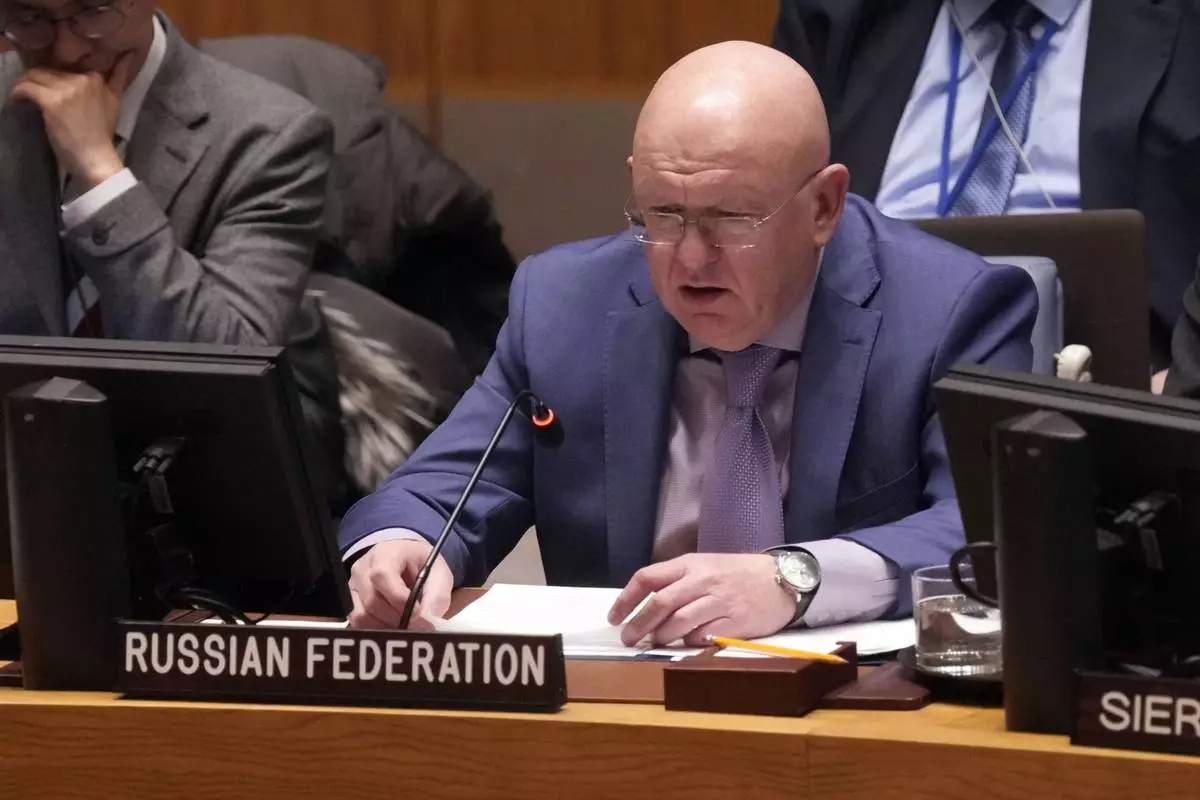
Russia UN Ambassador Vasily Nebenzya addresses the United Nations Security Council, Thursday, Dec. 19, 2024. (AP Photo/Richard Drew)
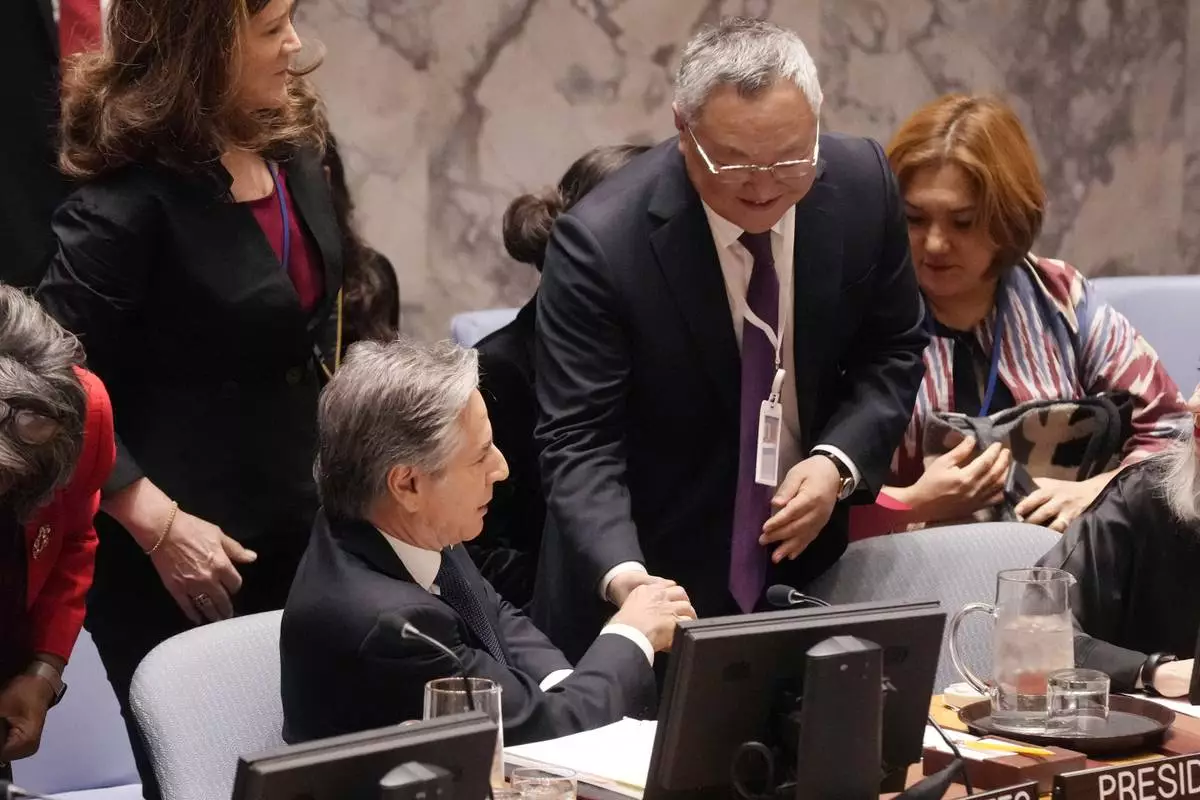
U.S. Secretary of State Antony Blinken is greeted by China's UN Ambassador Fu Cong, right, in the United Nations Security Council, Thursday, Dec. 19, 2024. (AP Photo/Richard Drew)
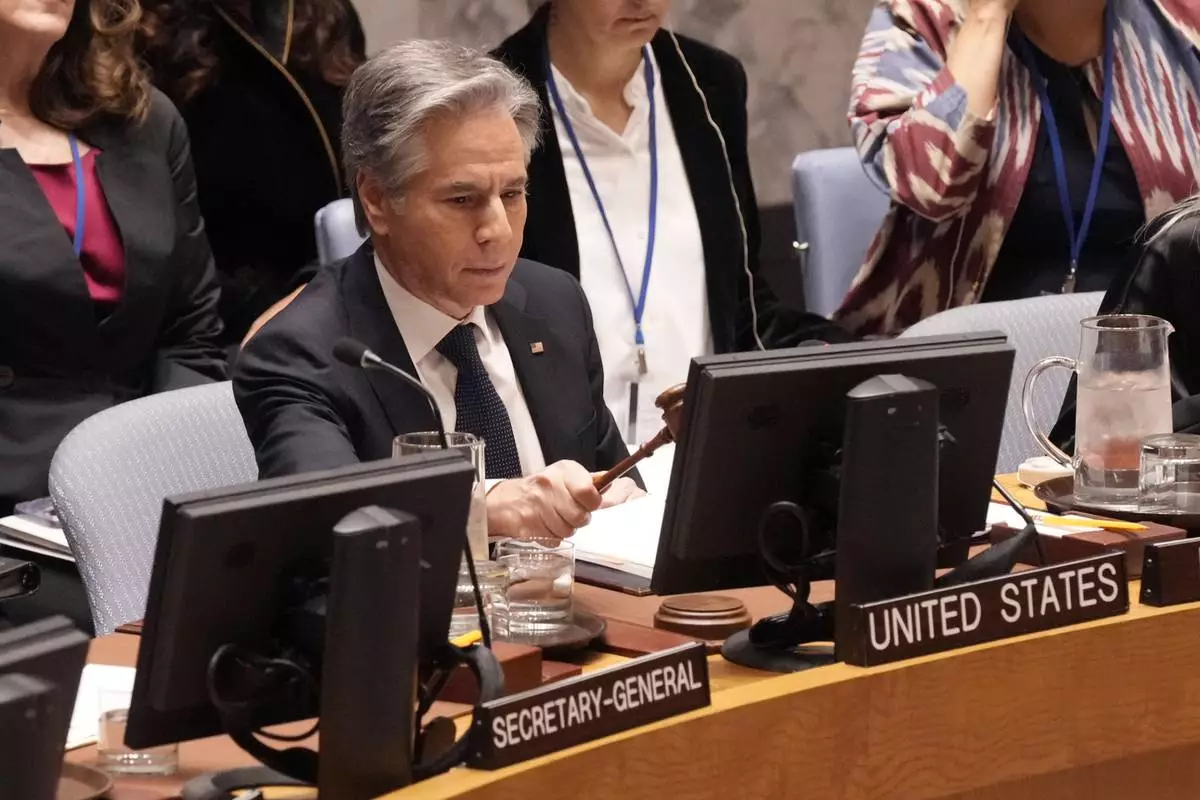
U.S. Secretary of State Antony Blinken gavels the meeting open as President of the United Nations Security Council, Thursday, Dec. 19, 2024. (AP Photo/Richard Drew)
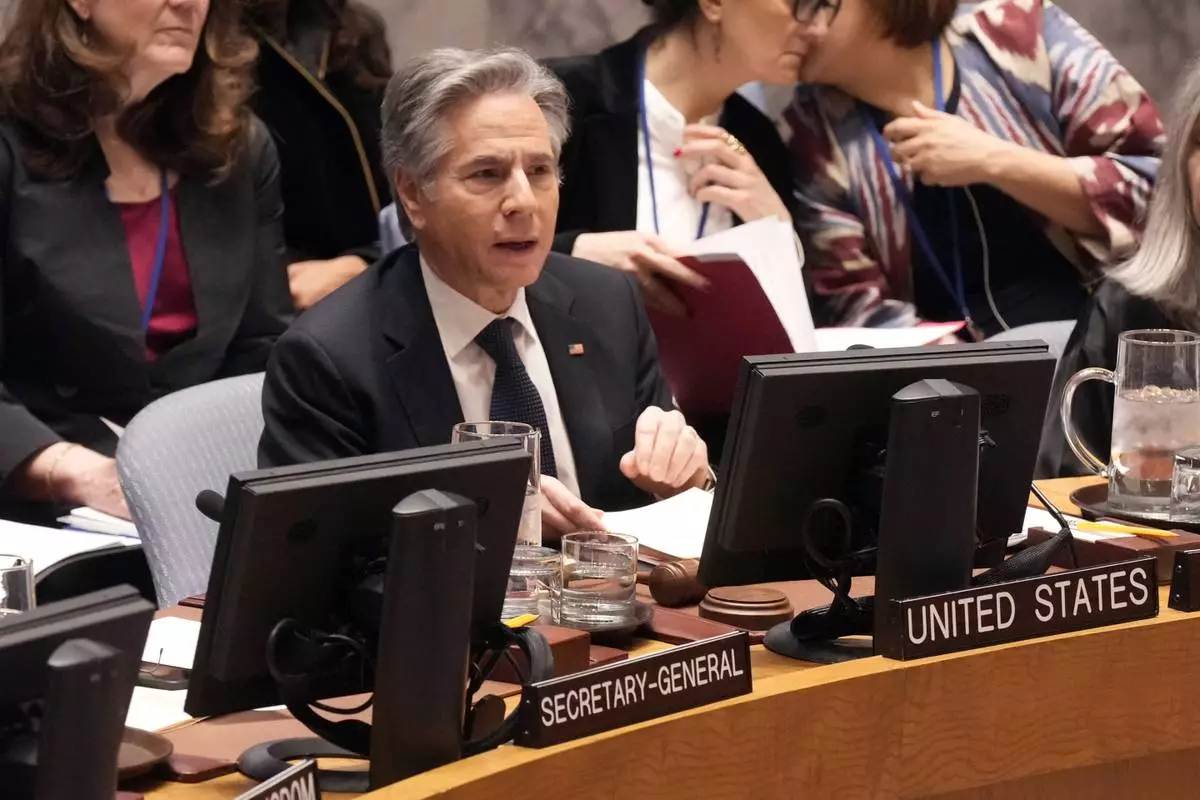
U.S. Secretary of State Antony Blinken addresses the United Nations Security Council, Thursday, Dec. 19, 2024. (AP Photo/Richard Drew)
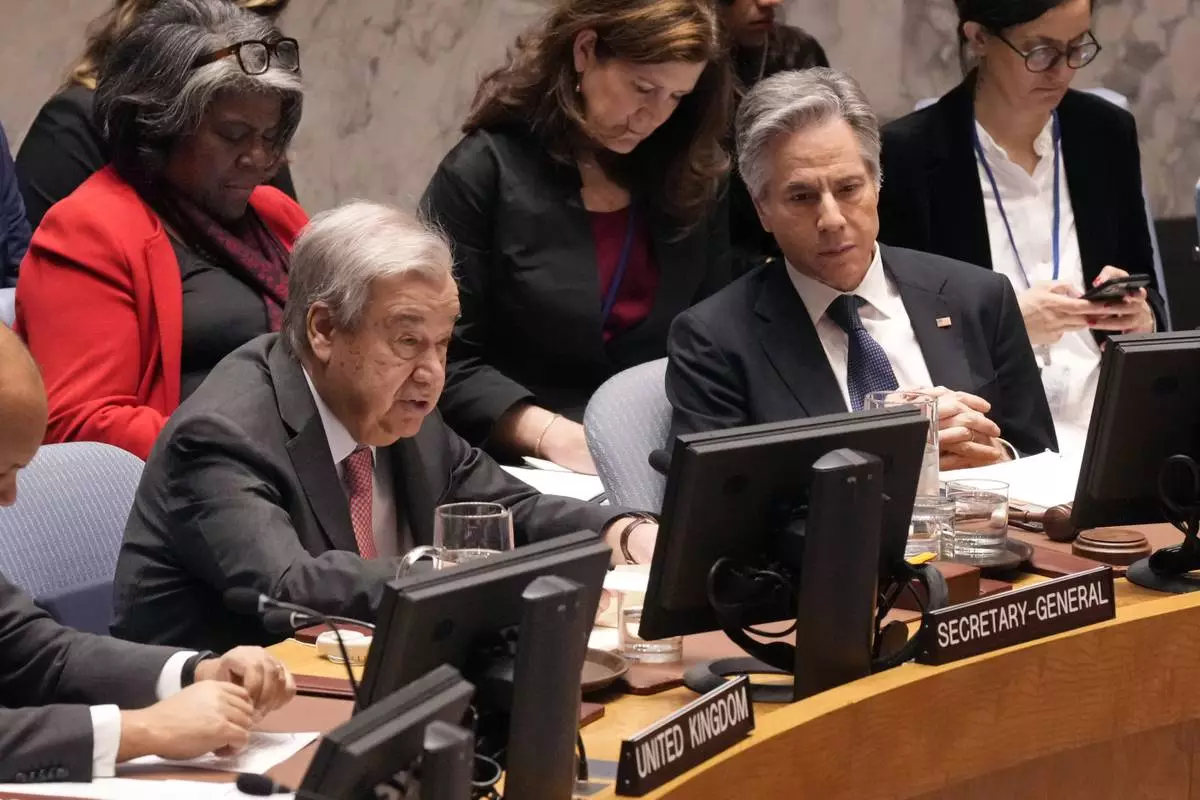
U.S. Secretary of State Antony Blinken, right, listens as UN Secretary General Antonio Guterres, left, delivers his remarks in the United Nations Security Council, Thursday, Dec. 19, 2024. US Ambassador Linda Thomas-Greenfield is seated, upper left. (AP Photo/Richard Drew)
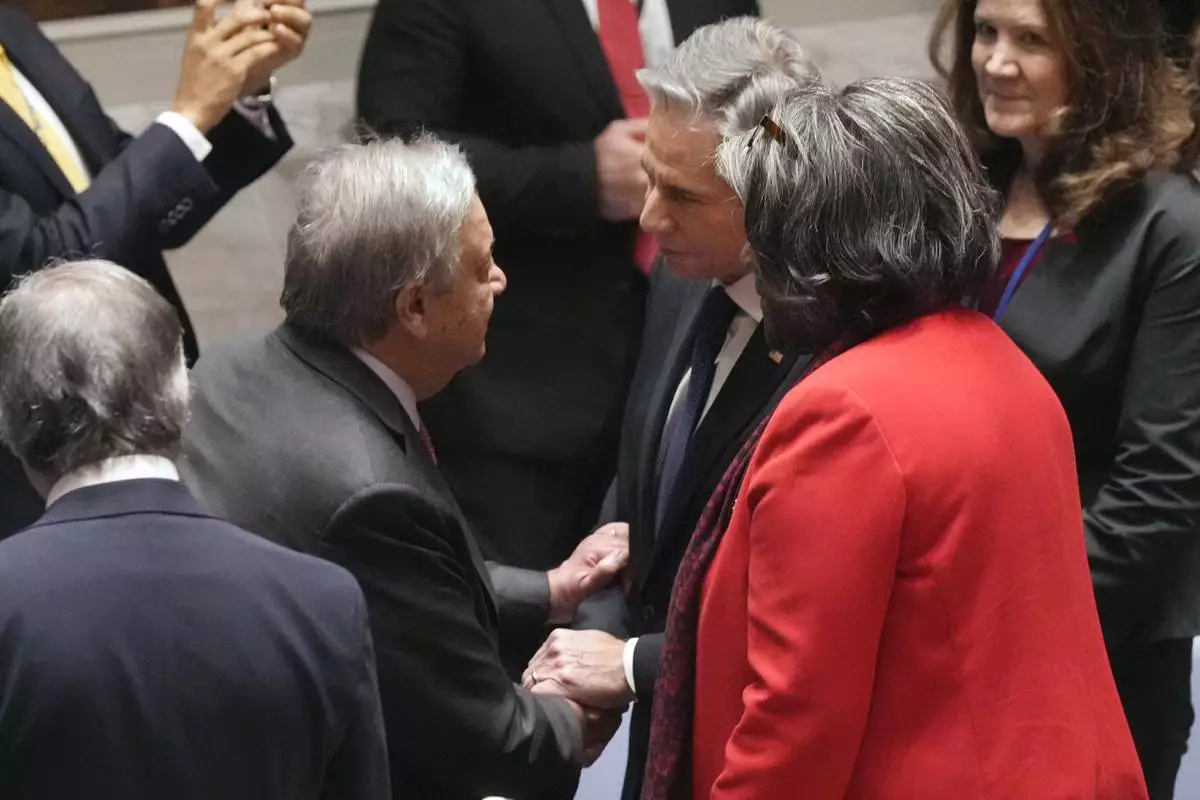
U.S. Secretary of State Antony Blinken, center, talks with UN Secretary General Antonio Guterres, left, and US Ambassador Linda Thomas-Greenfield, right, in the United Nations Security Council, Thursday, Dec. 19, 2024. (AP Photo/Richard Drew)
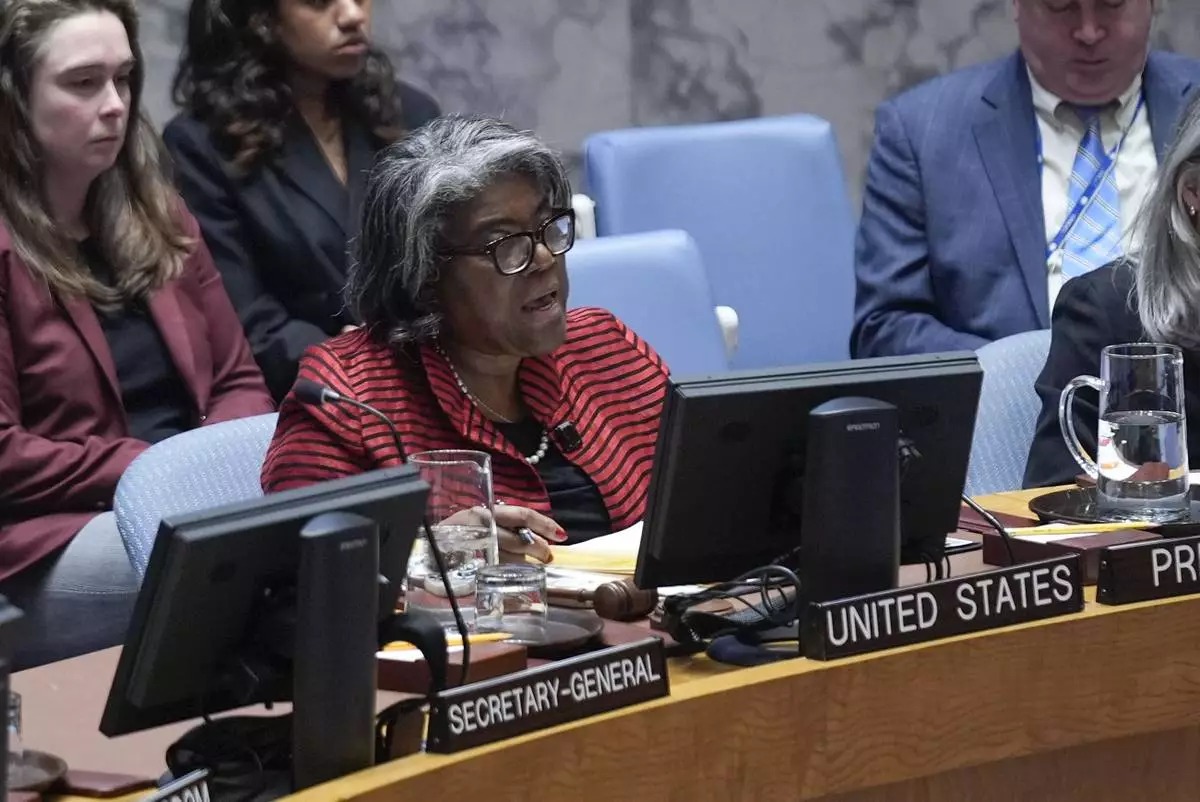
Linda Thomas-Greenfield, United States Ambassador to the United Nations, speaks during a Security Council meeting at United Nations headquarters, Wednesday, Dec. 18, 2024. (AP Photo/Seth Wenig)
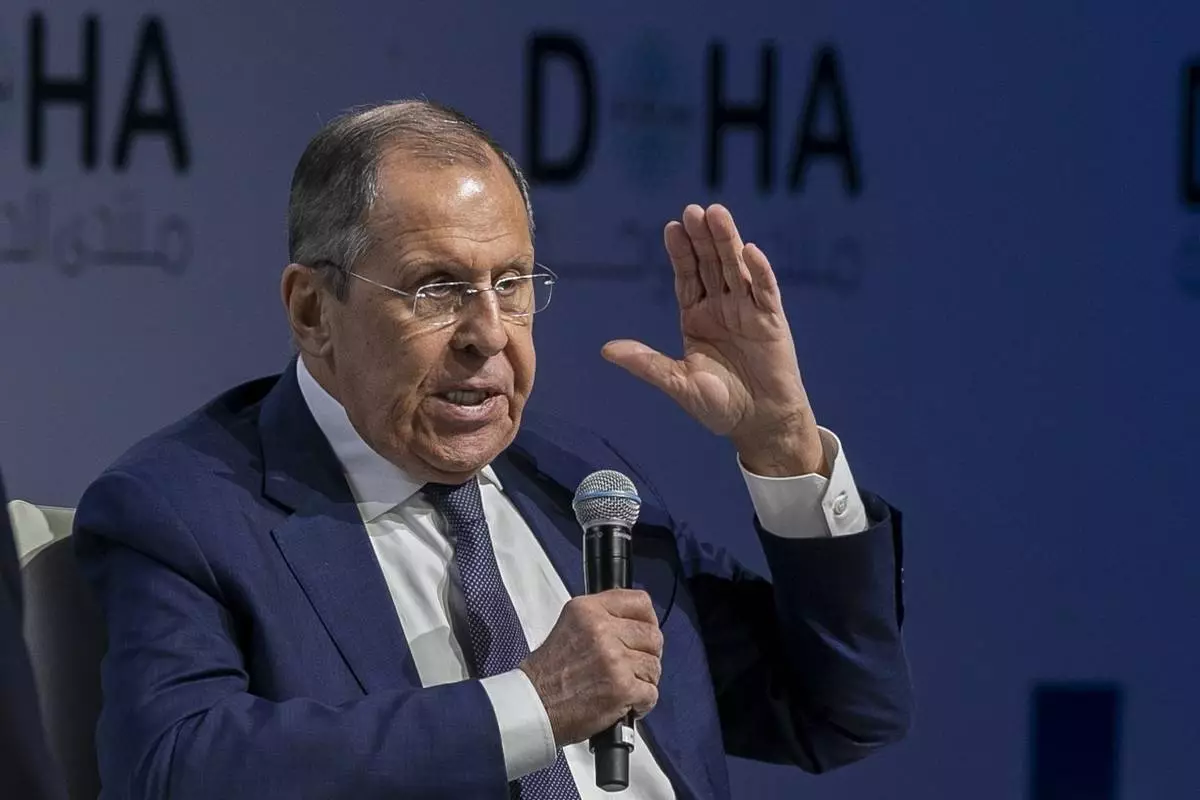
Russian Foreign Minister Sergey Lavrov gestures as he speaks at the Doha Forum in Doha, Qatar, on Saturday Dec. 7, 2024. (AP Photo/Hussein Sayed)
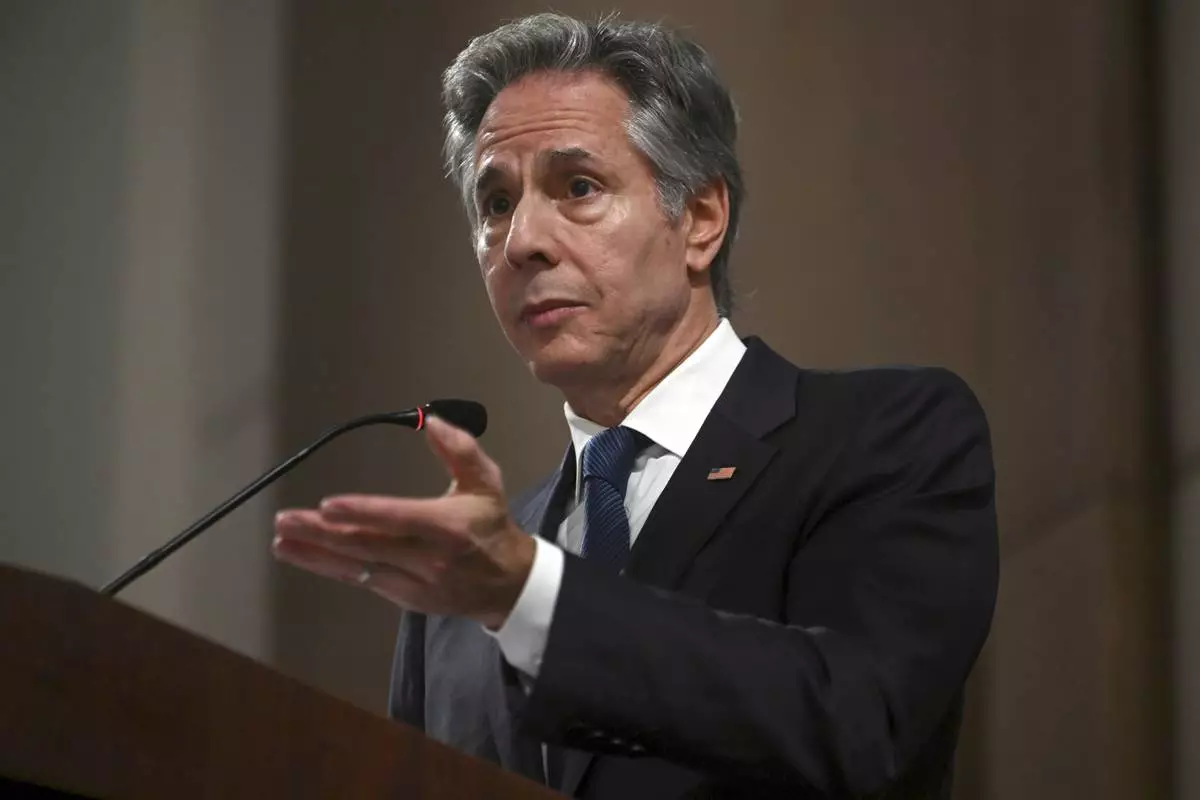
FILE - Secretary of State Antony Blinken speaks after meeting with the foreign ministers of the Arab Contact Group on Syria in Jordan's southern Red Sea coastal city of Aqaba, Dec. 14, 2024. (Andrew Caballero-Reynolds/Pool via AP, File)














